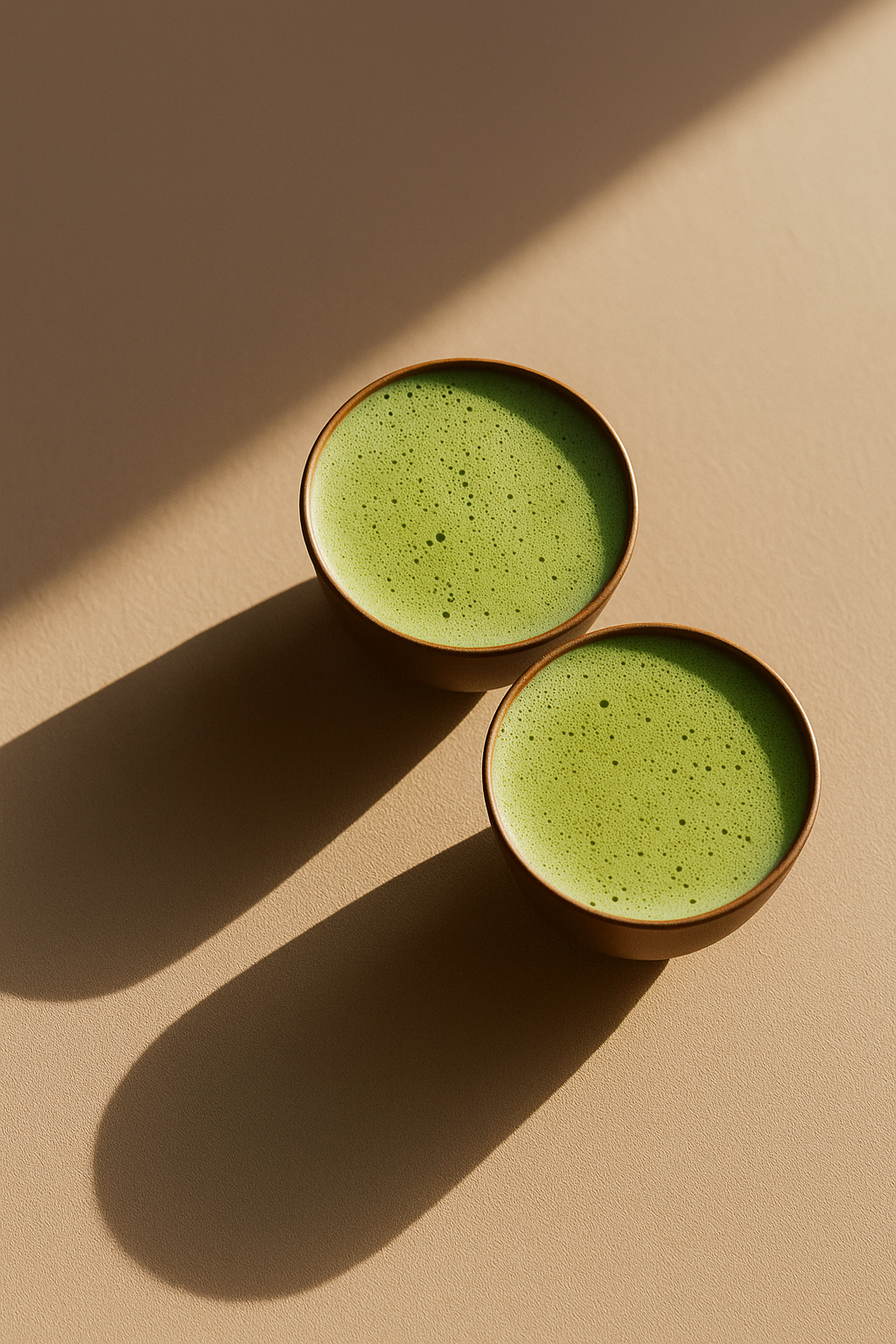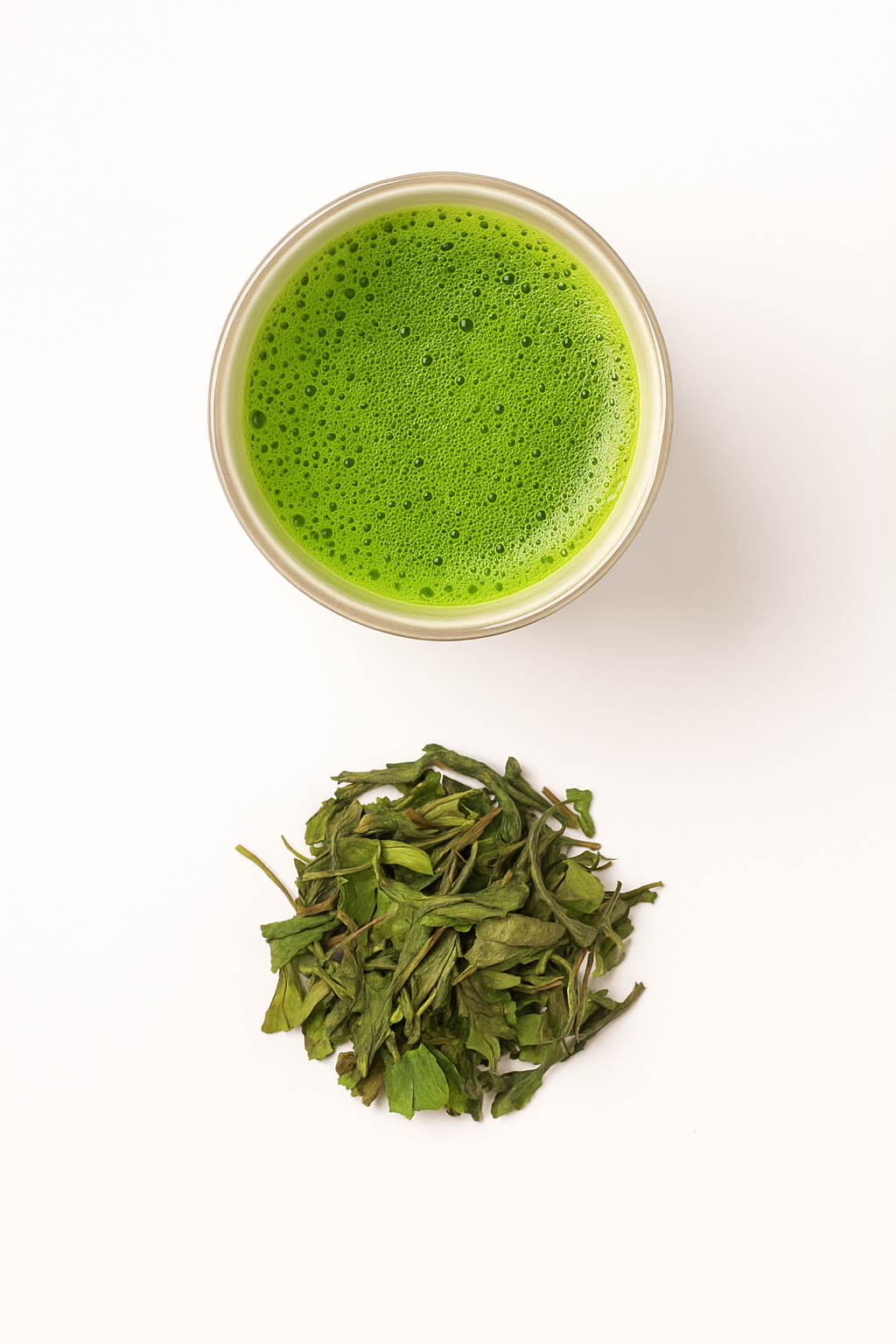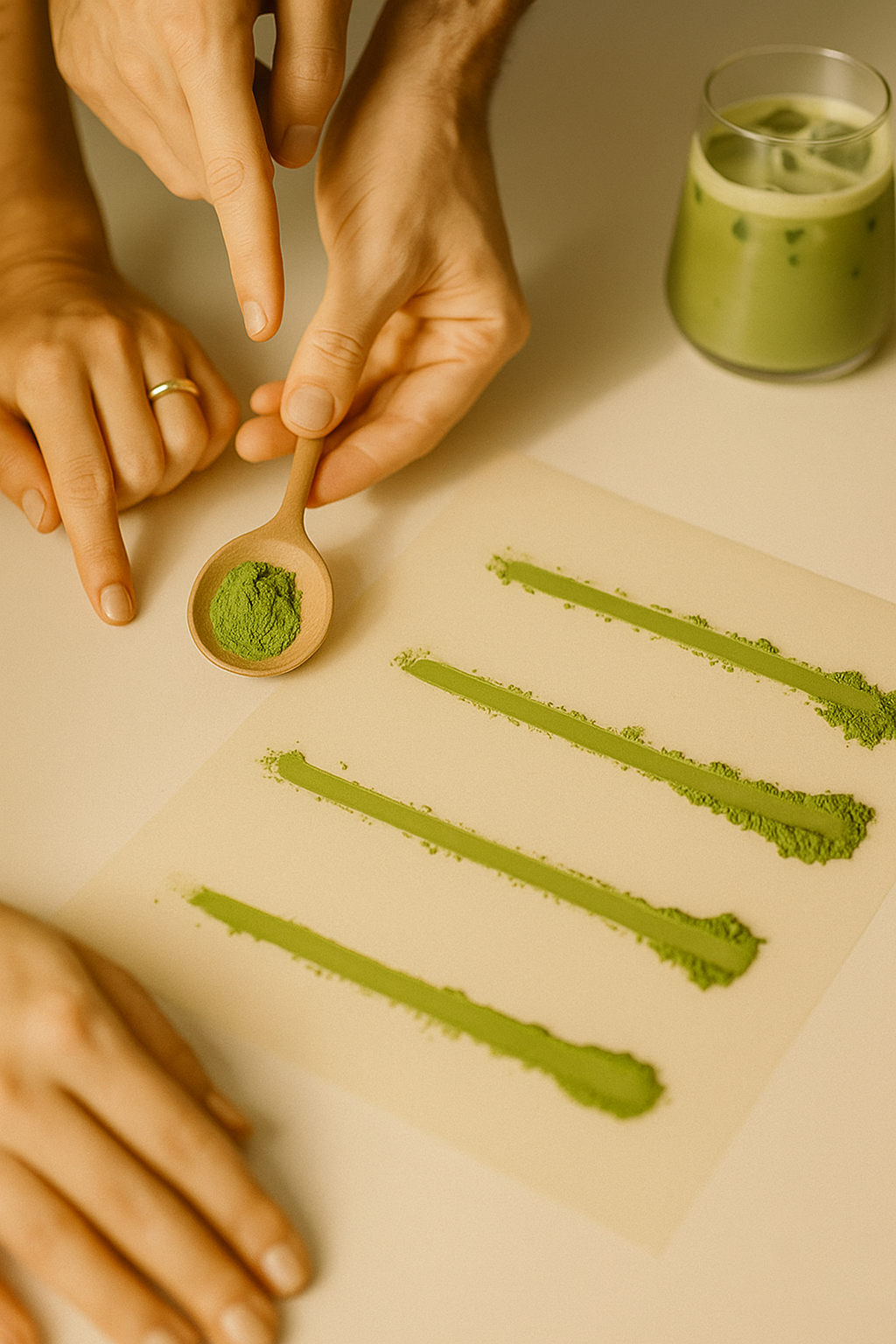
Organic vs. Conventional Matcha: What’s the Real Difference?
If you’re diving into the world of matcha, you’ve probably come across labels like “organic” and “conventional” but what do they actually mean? And how do they affect your cup?
Let’s break it down.
1. Farming Practices
The most obvious difference lies in how the tea is grown.
-
Organic Matcha is cultivated without synthetic fertilizers, pesticides, or herbicides. Farmers use natural compost, crop rotation, and other earth-friendly methods to nourish the soil and protect the plants.
-
Conventional Matcha may use chemical fertilizers and pesticides to promote growth and manage pests. These methods often lead to higher yields, but they can also impact the tea's chemical makeup and environmental footprint.
2. Taste & Aroma
This might surprise you but many people notice that organic matcha has a slightly milder, more vegetal or earthy flavor, while conventional matcha often tastes sweeter or more vibrant.
Why? Synthetic fertilizers can impact how nutrients are absorbed by the plant, sometimes enhancing amino acids like L-theanine (which contributes to that smooth umami taste). Organic soil conditions, on the other hand, can lead to subtler profiles.
3. Color & Texture
Matcha lovers often associate high quality with that bold, electric green color. But:
-
Organic matcha tends to be a little more muted, sometimes with yellow or olive undertones. That doesn’t mean it’s lower quality, just naturally grown.
-
Conventional matcha is often brighter, especially when chemical fertilizers promote rapid growth and chlorophyll production.
4. Nutritional Content
While both types of matcha offer antioxidants, catechins, and L-theanine, the exact levels can vary based on how the tea is farmed and processed.
Some studies suggest that conventional matcha may contain slightly more catechins, while organic matcha tends to have fewer chemical residues which is a win for clean-eating enthusiasts.
5. Environmental Impact
Choosing organic supports more sustainable, eco-friendly agriculture. It helps preserve soil health, reduce water pollution, and protect biodiversity. If environmental impact matters to you, organic might be worth the trade-offs in vibrancy or sweetness.
So, Which One’s Better?
It comes down to your priorities.
-
Want clean, sustainable farming with no synthetic chemicals? Go organic.
-
Prefer bold color and a slightly sweeter flavor? Conventional might hit the spot.
At Nippon Matcha, we choose organic to support sustainable farming practices and offer a clean, authentic taste that reflects the natural growing process.


